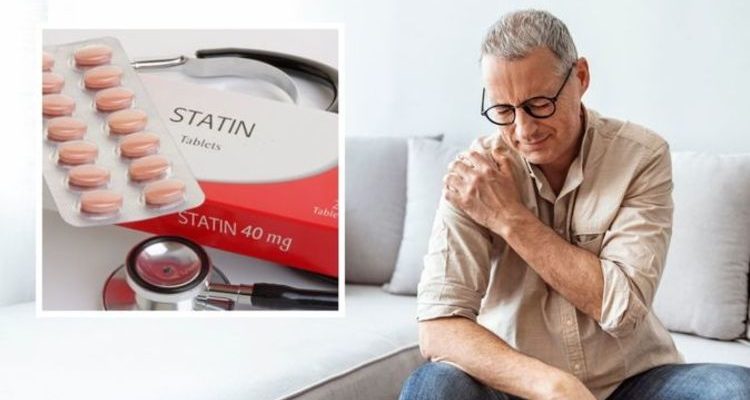Statins: How the drug prevents heart attacks and strokes
We use your sign-up to provide content in ways you’ve consented to and to improve our understanding of you. This may include adverts from us and 3rd parties based on our understanding. You can unsubscribe at any time. More info
The main task of statin medicine is to lower cholesterol levels as a high amount of this fatty substance can lead to heart problems and stroke. Patients who already suffer from heart disease might also be taking the medicine to avoid any further risks. Here’s how to spot a common side effect linked to the medication.
Some people might not experience the side effects of statins as they are generally well-tolerated, according to the NHS.
Your doctor will explain all the risks and benefits of this medicine before you start your treatment.
However, as with any medicine, there are some side effects you might experience during the course of taking statins.
These will differ based on the exact type of statin you’re taking.

One common side effect linked to atorvastatin is myalgia, according to the National Institute for Health and Care Excellence.
Myalgia describes muscle aches and pain, Hopkins Medicine details.
This same symptom was also identified as one of the Omicron symptoms by the chair of the South African Medical Association Dr Angelique Coetzee.
The South African doctor first raised the alarm regarding the new variant.
Dr Coetzee said myalgia seems to be more “intense” for unvaccinated patients but can affect anyone with Omicron.
She described this symptom can present as “sore” muscles.
The doctor advised that if you wake up in the morning with muscle pain, this could be signalling Omicron infection and you should get tested.
Statins can also cause muscle pain as they occasionally cause “inflammation and damage” in muscles, the NHS states.

The health body advises speaking to your GP if you have muscle pain or tenderness that isn’t caused by physical work or can’t be explained.
If your doctor suspects that statins are behind this, they might do a blood test to measure creatine kinase in your body.
Creatine kinase is a substance that is released into the bloodstream when your muscles are inflamed or damaged.
Once your levels of this substance get back to normal, you might be told to continue the statin treatment but at a lower dose, the NHS adds.

If you’re not sure what is causing your myalgia, you should seek medical advice, the health body reminds.
Omicron can also cause other symptoms, including headache, tiredness and fever.
If you think you might have symptoms of Covid, the NHS advises to isolate and get a PCR test.
Myalgia isn’t the only side effect of statins. To see the full list, you should always refer to the patient information leaflet enclosed with your medicine and your doctor’s advice.
Source: Read Full Article
